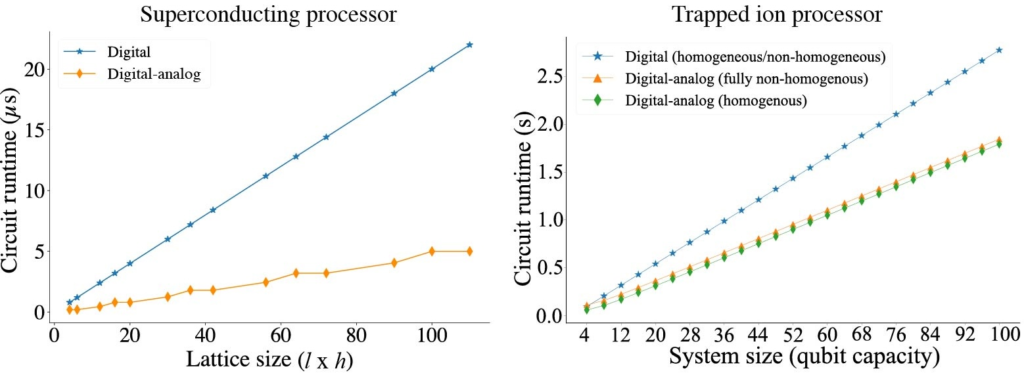Kipu Quantum has published a technical overview of Digital-Analog Quantum Computing (DAQC), a hybrid paradigm that integrates the discrete gate operations of digital quantum computing with the continuous quantum dynamics used in analog approaches. DAQC leverages native hardware interactions while reducing the need for deep circuit depth, making it especially relevant for NISQ-era devices. Despite its benefits, DAQC remains underutilized by hardware vendors, who have focused primarily on digital architectures.
The company illustrates DAQC’s potential through applications such as fermion-boson simulations and quantum optimization. In superconducting circuits, natural couplings can be exploited to implement the Hubbard-Holstein model with reduced gate requirements. For optimization tasks, Kipu demonstrates how Digital-Analog Counterdiabatic Quantum Optimization (DACQO) enables solutions to larger problems with shorter runtimes and lower error rates. These approaches have been tested on trapped ion systems and are being expanded to additional platforms including photonic and spin-qubit processors.
Kipu references recent demonstrations by Google and QuEra as real-world validations of DAQC concepts. Google used superconducting hardware for quantum phase transition studies, while QuEra employed neutral atom processors for logical qubit encoding. These results provide practical evidence of analog interactions improving quantum algorithm performance, particularly for quantum error correction and simulation.
The article identifies several high-impact application domains where DAQC could outperform classical methods: drug discovery, materials modeling, financial risk assessment, and logistics optimization. By reducing algorithmic complexity and enhancing noise resilience, DAQC makes quantum hardware more usable for industrial tasks even before full fault tolerance is reached. Kipu is developing methods that compete with classical tools like Gurobi, CPLEX, and tensor networks.
Kipu calls on hardware providers to systematically explore DAQC potential on platforms such as superconducting (Google, IQM, Rigetti), neutral atoms (Pasqal, QuEra), trapped ions (AQT, eleQtron), photonics (Quandela), and spin qubits (Diraq). The company continues advancing DAQC in-house for quantum simulation, chemistry, and optimization, aiming to bridge the gap between theoretical potential and real-world advantage.
Read the full article from Kipu Quantum here.
April 11, 2025


